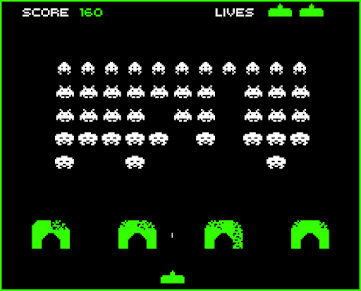Featured
Create Your Own Video Game: A Step-by-Step Guide
Creating Your Indie Game
Game development is a multiple steps to reach your goal(result), so here we'll share with you some of essential tips. Using any engine you want eg: Unity, Unreal, GameMaker, Godot, Gdevelop, Phaser, More..., let's start!!
Step 1: Define Your Vision:
Conceptualize Your Game: Begin by brainstorming your game idea. What's your story, genre, and gameplay mechanics? Clearly define your vision for the game.
Set Goals: You should know what you will do, or what is the result you will expect, you can use any notebook to set your goals, and these goals also will make you motivated to finish more.
Step 2: Learn the Basics:
You are having your story, and ideas, now what??
Know Game Design: Designing game need extensive research, it is more like making a document that has all your game properties, like genre, gameplay, story, and marketing strategy, and more...
Choosing a Game Engine: It is the most fate step when creating your game(not soo fate :/), you know why? bec. you will be working with this engine all your game, Popular choices include Unity, Unreal Engine, and Godot. Each has its own learning recourses and ways, so choose one that aligns with your goals and skill level.
Step 3: Develop Your Skills:
Master Art and Design: If you're creating 2D or 3D games, learn about art and design principles, including graphic design and 3D modeling. Tools like Blender and Photoshop are excellent for creating game assets.
Step 4: Start Small:
Begin with a Prototype: Instead of diving into a massive project, start with a small, simple game. Prototyping allows you to experiment and refine your ideas while learning the basics.
Iterate and Playtest: Continuously refine your game by iterating on its design and mechanics. Regularly playtest with friends and gather feedback to make improvements.
Step 5: Create Assets:
Design Game Art: Create or source art assets for your game, such as characters, environments, and objects. Ensure they match your game's style and aesthetics.
Implement Sound: Sound effects and music are essential for creating an immersive experience. You can create your own or use royalty-free assets from sites like Free Music Archive or Freesound.
Step 6: Finalize and Publish:
Optimize and Test: Ensure your game runs smoothly and bug-free. Test it on different platforms to guarantee compatibility.
Publish Your Game: Distribute your game on platforms like Steam, the App Store, or Google Play. Follow their guidelines for submission and marketing strategies to reach a wider audience.
Step 7: Promote Your Game:
Marketing and Promotion: Create a website or landing page for your game. Use social media, influencers, and online communities to build anticipation and generate interest.
Gather Feedback: Encourage players to provide feedback and make updates to address their concerns. This will improve your game's quality and user satisfaction.
Step 8: Learn and Adapt:
Analyze the Metrics: Monitor player engagement, user reviews, and other data to gain insights into how your game is performing. Use this information to make necessary improvements.
Stay Updated: The game development world is constantly evolving. Stay current with new technologies and trends to continue creating successful games.
Step 9: Network and Collaborate:
- Connect with the Community: Join forums, attend game developer conferences, and network with other developers. Collaboration and shared knowledge can be invaluable.
- last not least, Keep Creating, Once you've completed your first game, start working on your next project. Building a portfolio and gaining experience is crucial in the game development industry,
- hope this helped you, and if you have any question write below in comments and i will do my best!!



Comments
Post a Comment